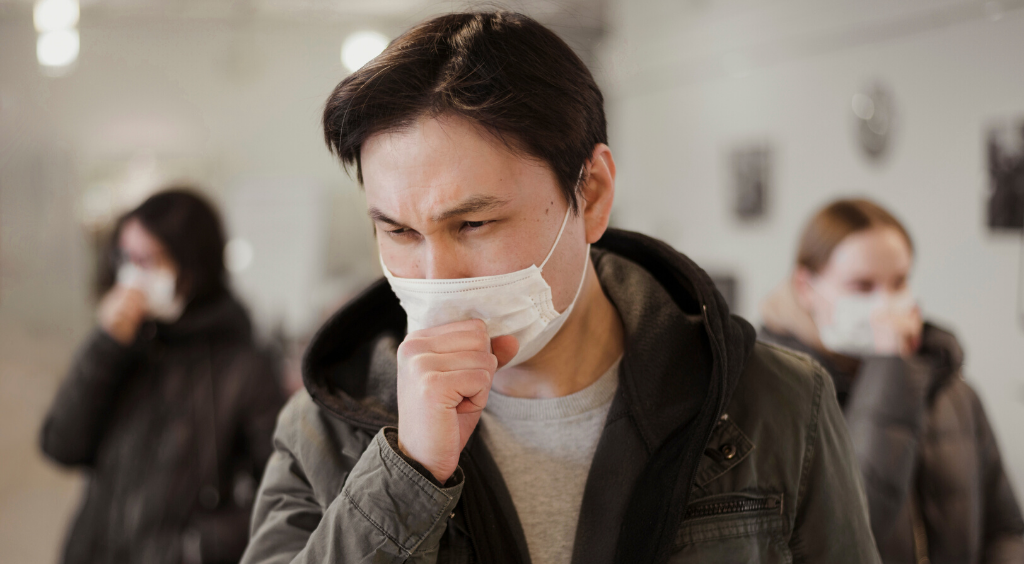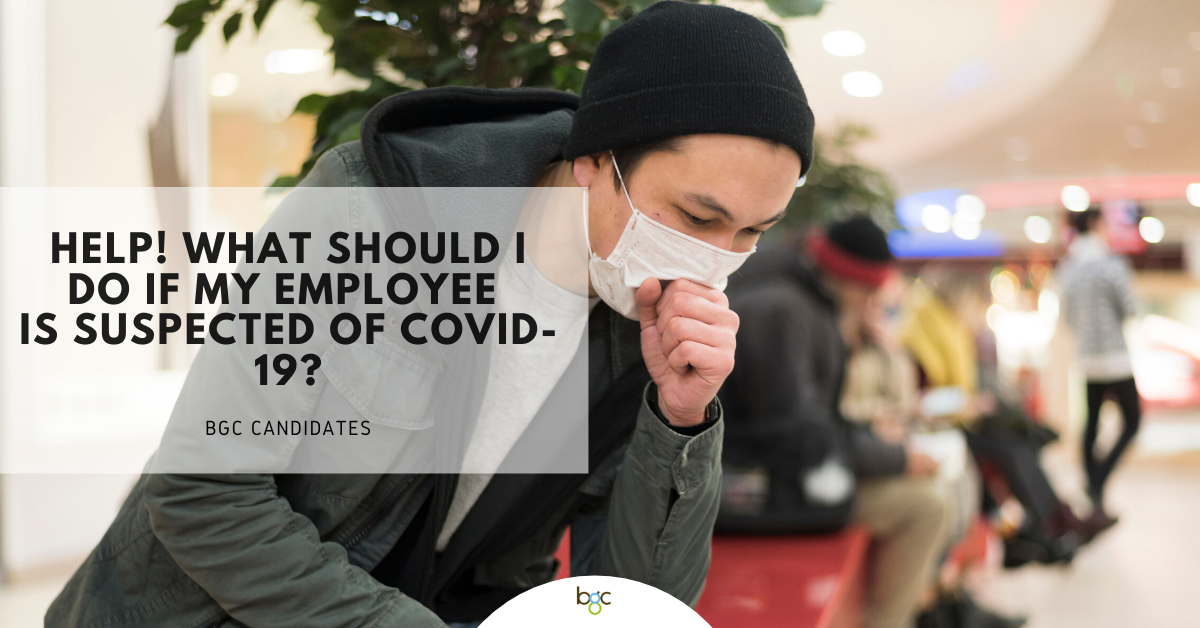While the human resources team might be prepared with an arsenal of hand sanitizers, masks, and “work-from-home” protocols. This is just one portion of a multi-step process to protect both the organization and its employees from the growing Covid-19 epidemic.
As a recruitment agency in Singapore specializing in healthcare and IT roles, our mission is to try and make HR information accessible. Below, are some steps (and answers to frequently asked questions) regarding the Covid-19 epidemic in Singapore offices.
1. What Should Employers Do if Someone at Work is Suspected of Covid-19:

If one of your employees at work is a suspected Covid-19 case. There are some steps that Singapore’s Ministry of Health (MOH) recommends organizations to take. These precautionary measures include:
-
Evacuate employees working in affected offices. The section where the employee involved works should be immediately cordoned off.
-
A deep clean and sanitation of the office should take place. In fact, it should follow the cleaning guidelines set. According to the Centre for Disease Control (CDC), the best way to disinfect an area is by regularly cleaning areas and surfaces frequently touched by people. The CDC also recommends waiting 24 hours before deploying cleaners to disinfect areas that have been in contact with potential cases.
Read more about the environmental cleaning and disinfection recommendations by the CDC here.
-
Brief your employees. Employees who have come in contact with a suspected case might not show any symptoms for two weeks. If a suspected case has come in contact with other employees at work. It puts them at high risk of contracting and spreading the Covid-19 virus.
To prevent the further spread of the virus, companies should encourage proper handwashing protocol, encourage taking up medical leave, as well as a flexible “work-from-home” scheme to name a few.
-
Keep in touch with the employee. Never abandon the employee, especially in times of need. Once the employee has been transferred to a secure health facility, try to ask them for a list of names of other employees and/or clients they’ve been in contact with.
-
Contact trace. While Singapore’s Ministry of Health (MOH) might be conducting their own contact tracing. It’s imperative to contact trace within your organization as well. In fact, organizations and human resources can take precautionary measures well before Covid-19 enters the office.
For instance, keep details of meetings employees have attended or held for at least one month. A better alternative will be to switch real-time face to face meetings with video conferencing.
These are just some of the steps that employers should take if an employee turns out to be a suspected case. However, some additional steps that both HR and the organization should take if an employee at work shows symptoms of the dreaded Covid-19 virus. They are:
-
Firstly, identify an area or a room where someone who is feeling unwell can be isolated. This room can also be used to confine an employee showing direct Covid-19 symptoms.
-
Decide on a plan on how the employee should be transferred to a health facility. If unsure, try calling 1777 (SCDF Singapore) and explain that the patient is showing possible Covid-19 symptoms.
-
Deploy a plan to brief and isolate those in close contact with the employee if they’ve been confirmed to be a Covid-19 case. Additionally, assist MOH as much as possible with contact tracing.
-
Provide employees with a 5-day medical leave. Due to the ongoing situation, employers are urged to honour employees with a 5-day MC leave. Of course, the employee will have to be assessed by a certified doctor. Additionally, the MC will only be given to those displaying symptoms such as fever, respiratory issues, and cough during this Covid-19 season.
2. What Other Precautions Should Employers Take Note Of?

Precautions shouldn’t be set in place only when Covid-19 enters your premises. In fact, precautionary measures should always be set in place and practised during this outbreak period. They can include:
-
Promoting hygiene. Encourage regular handwashing, respiratory hygiene, and regular cleaning. Surfaces should be sanitized regularly.
-
Advise employees to take note of their health. Employees who are unwell should not be encouraged to come into work. In addition, regular temperature taking should also be implemented.
-
Implement a rotating work-from-home schedule. When it comes to reducing the chances of exposure, a rotating work-from-home schedule might be one way for companies to do that and stay afloat.
Similarly, employees who have travelled to areas and countries affected by Covid-19 should be allowed to work-from-home. This allows the employee to safely quarantine themselves, away from areas frequented by other employees.
Learn more about the different preventative protocols HR should set in BGC Group’s latest article, “Covid-19 Wrap Up: 6 Things HR Departments Should Take Note Of”.
-
Avoid sending employees overseas. Especially older employees and those with compromised immune systems. In addition, try to avoid sending employees who may be at a higher risk of serious illnesses overseas. These can include individuals with medical conditions such as diabetes as well as heart and lung diseases.
The World Health Organization has officially declared Covid-19 a worldwide catastrophe. With the epidemic going on, employers should already prepare a Business Continuity Plan (BCP) to fall back on.
In times like these, HR staff should take the time to focus completely on both the company’s well being as well as the health and safety of the employees. It is imperative for organizations to outsource menial HR tasks such as recruitment and payroll processing, in order to concentrate fully on more pressing issues like BCP prepping. Learn more about BGC Group’s recruitment and payroll processing services here.
What are some questions do you have regarding Covid-19 as an employee? Share with us in the comments section below!
Read More: Covid-19 Wrap Up - 6 Things HR Departments Should Take Note Of
